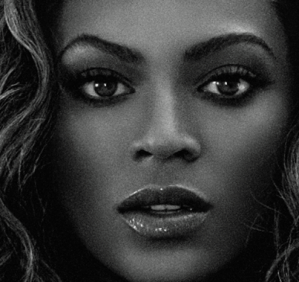
"Beyoncé" is the biggest-selling Album of 2014 with sales of over 2.3 million and 933.000 of those in 2014. No other Act has managed to stay on top of the World's Best-selling Album charts for as long since Adele's "21". One Direction's "Midnight Memories" is the second best-selling Album of 2014 with sales of 583.000 and Eminem's "The Marshall Mathers LP 2" is third with sales of 496.000.
“Beyoncé", Queen Bey’s Dec. 13 midnight surprise arrived through a one-week exclusive, album-only release on iTunes. Like Jay Z’s everything-at-once-release with Samsung, it shut out streaming, retail and individual track sales, forcing listeners to focus on the album as a cohesive work. The result seemed to transform everyone—industry executives, journalists, Twitter cynics, casual listeners—back into a fan.
“She took a high risk and was highly rewarded for it,” says Guy Oseary (No. 38 on Billboards Power list), who manages Madonna and U2 at his Untitled Entertainment. “I love what she did. Thank you, Beyoncé—it brings much-needed excitement and buzz to our industry.”
Though there was great discussion of the game-changing implications of both releases—and whether they can ever be re-created—perhaps what’s most important is that Jay Z and Beyoncé found ways to focus attention on music itself. For years label bosses have said that audiences will pay for music if they’re excited, and that turns out to be true: Magna Carta . . . Holy Grail sold 528,000 in its first week, which beat Jay’s previous recent releases, according to Nielsen SoundScan. In total, the album sold 1.1 million copies in 2013, one of only three rap releases to go platinum last year. Beyoncé moved even quicker with the singer’s surprise blitz—in the first three hours of release the album sold 80,000 copies through iTunes and, sources say, 850,000 in the first week. In its four weeks of release it sold 1.3 million. That total was enough to make it the eighth-biggest-selling album in America of 2013 in less than a month.”
“The release of Beyoncé’s album was a great way to finish the year, and a chief reminder for me that artists, songwriters and producers have really good ideas,” says Warner/Chappell Music president of creative for North America Jon Platt (No. 51), who brought both Beyoncé and Jay Z to the powerful publisher. “We’re supposed to help them nurture and realize those dreams, not kill them. At times, experienced company executives can be so smart at outlining every reason why an idea can’t work instead of focusing on how it can work. In the case of Beyoncé’s album, her team focused on how it could work.”
Island Def Jam and Columbia, Jay Z and Beyoncé’s respective labels, worked closely with the artists and their management teams to execute these disruptive deals, but other label heads remain most impressed by the artists’ take-charge approach. “Just watching [the Beyoncé] phenomenon happen was really exciting—and admittedly more enjoyable watching it from the sideline than being in the midst of it,” says Republic Records president/COO Avery Lipman (No. 17). “It said, ‘Look what a certain type of artist can do with the press of a button.’”
And RCA Music Group president/COO Tom Corson and CEO Peter Edge (No. 21) see the moves as part of a shift toward social media and partners outside the traditional label system. “The dynamic of social media moving the needle is now at the center of any smart campaign,” Corson says. But more than ever, Edge argues, “finding new opportunities has become more significant—Jay Z with Samsung, Justin [Timberlake] with Target and Budweiser. It’s not terribly new, but it seems like this is the new dynamic of the business—to find partners. We see ourselves as partners not only with the artists and their camps but with other companies and aligned businesses.”
Website Proudly Designed, Development & Supported by Nocturnal Cloud.